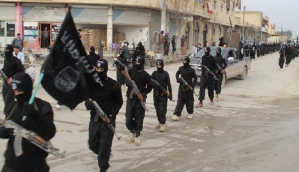
Six months after Islamic State militants overtook Mosul, northern Iraq's second largest Christian city, citizens are left suffering from a lack of clean water, proper heating, and a shortage of medicine.
In June, ISIS militants invaded the city and large areas of Iraq and Syria in June, forcing Iraqi forces to flee and promising a new, "better" life under an Islamic caliphate.
However, government officials and residents of Mosul paint a far darker picture of life under ISIS rule.
"The economic conditions in ISIL-held territory, including Mosul, have deteriorated since ISIL's offensive in June," writes Jen Psaki, spokesperson for the US Department of State.
"Electricity provision has declined, fuel and food prices have spiked, clean water is in short supply, and trade and local commerce have been disrupted," she added. "Many government workers have also been unable to collect their salaries, and ISIL routinely taxes and extorts funds from households and businesses," she added.
"The impression given in IS propaganda is a group offering a better quality of life than before that is also more just for locals," said Aymenn al-Tamimi, an expert on jihadist organizations, according to the Daily Star.
But "the hardships of the locals certainly undermine IS claims to be a state meeting the needs of the people and offering them real security," he said.
One of the largest problems to develop under ISIS rule is the "disruption of water treatment stations," or the lack of clean water.
"The biggest and most dangerous problem now is because of our harsh circumstances and the absence of services," said Abu Ali, a citizens of east Mosul whose wife is currently sick due to the contaminated water.
A water treatment official in Mosul explained that most government employees skilled at basic services were forced to flee the country after ISIS invaded.
"Treatment stations are old and the water distribution networks are damaged," he said, adding that there was now a shortage of workers as well.
Mosul General Hospital is reportedly overrun with patients afflicted with stomach and intestinal infections and hepatitis due to the contaminated water--but there are no supplies left to treat them.
"Communication with government institutions has been cut and we have not received any budget to allow the provision of the medicines we need," said an official in the Ninveh provincial health department.
Umm Mohammed, a resident of west Mosul who brought her 10-year-old son to Republican Hospital for treatment, said: "There is a major shortage of medicine needed to treat these sick people.
"The roads are closed and Mosul has turned into a big prison that we can't leave," she said.
Life in the city is deteriorating for its residents at a terrifying rate, says a man who recently fled Mosul for Irbil. Citizens are forced to rely on local generators for their electricity, and the oil they are forced to use is of poor quality and ruins the engines it is used to power.
"My people cannot live this way for much longer," he said.
"ISIS promised us heaven, but they brought a living hell. I was one of the people who hated [Nouri al-Maliki's] army, but now I would like the Iraqi army to come back," he says. "People in Mosul would welcome them. Anybody would be better than Isis, even the Israelis. We are dying."







